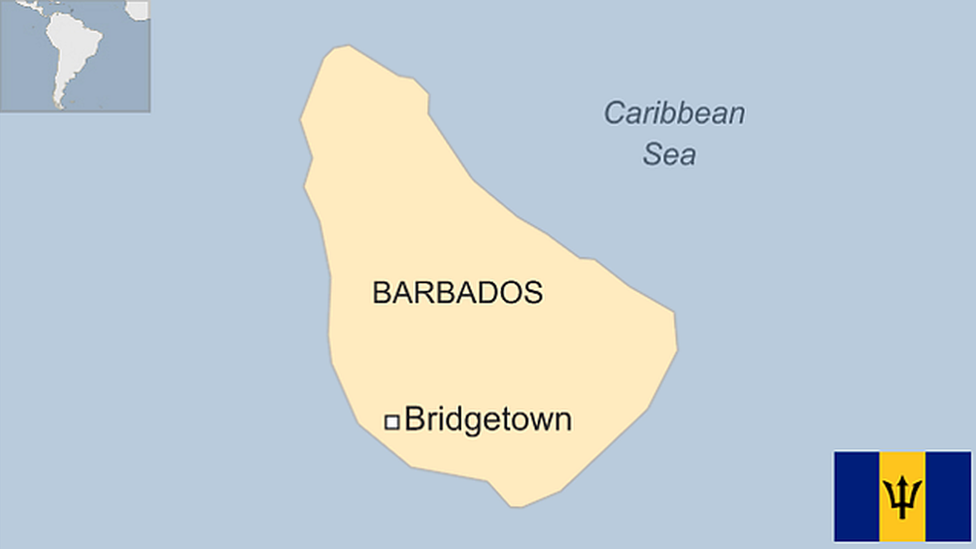Martinique profile
- Published
This page is no longer being updated. It was last updated on 10 July 2023
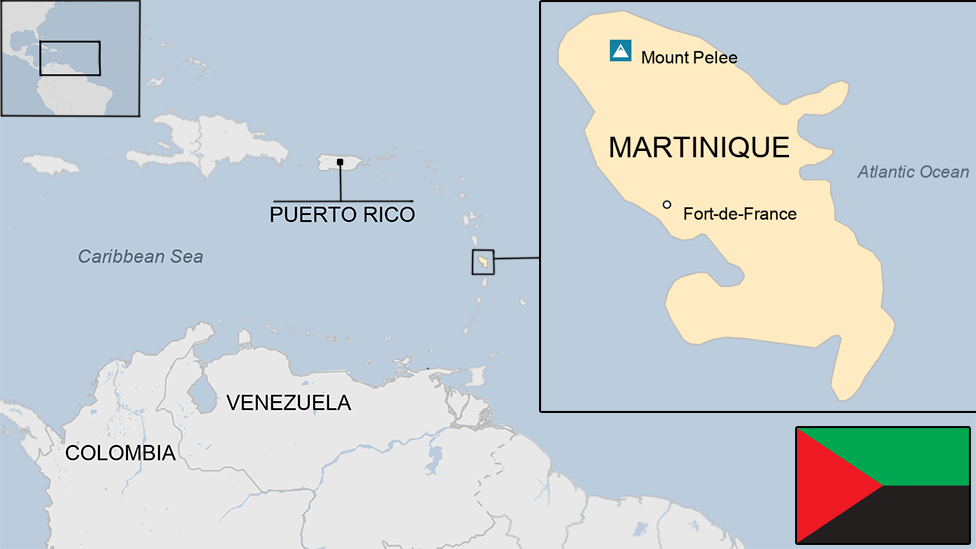
A mountainous and densely-populated overseas department of France, the Caribbean island of Martinique has a French and Creole heritage.
Tourism flourishes and it is the birthplace of the African-French music form "the Beguine".
Visited by the explorer Christopher Columbus and briefly occupied by the Spanish, Martinique was settled by the French in 1635. Other colonial powers vied for control of the sugar-producing island and it came under brief periods of English rule in the 18th and early 19th Centuries.
Despite a reliance on aid from Paris, Martinique has one of the higher standards of living in the region. Serious protests at rising prices and persistent unemployment flared in 2009 on Martinique and other French Caribbean islands, prompting France to negotiate more aid and the promise of constitutional reform.
Read more country profiles, external - Profiles by BBC Monitoring
MARTINIQUE: FACTS
Capital: Fort-de-France
Area: 1,128 sq km
Population: 364,500
Languages: French, Martinican Creole
Life expectancy: 78 years (men) 84 years (women)
LEADER
Head of state: President of France
Martinique is an overseas territorial collectivity of France, It has a ruling assembly, the Assembly of the Territorial Collectivity of Martinique, and is represented in the National Assembly and Senate in Paris. It is also an outermost region of the European Union.
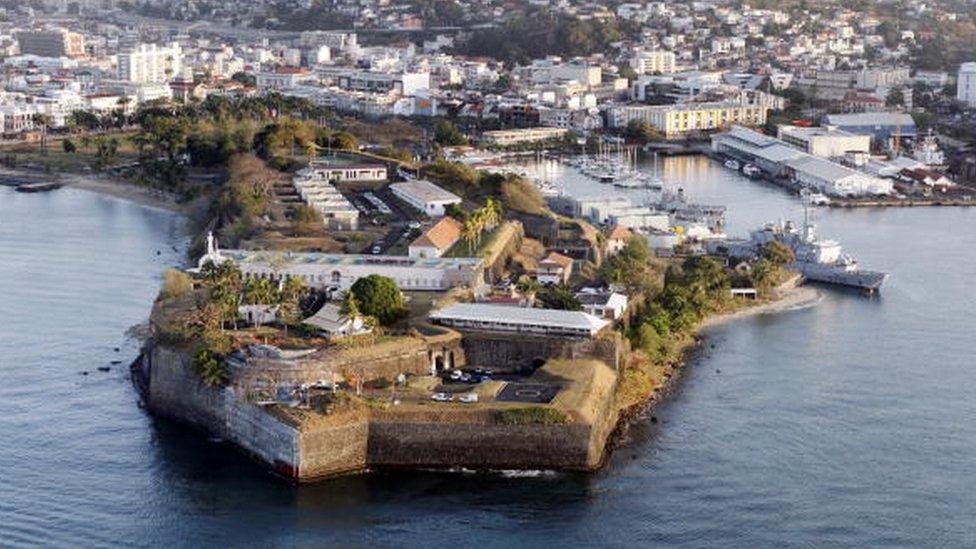
Saint Louis port in the city of Fort-de-France
MEDIA
Martinique's TV and radio services are provided by the French public overseas broadcaster, RFO, and by private operators.
TIMELINE
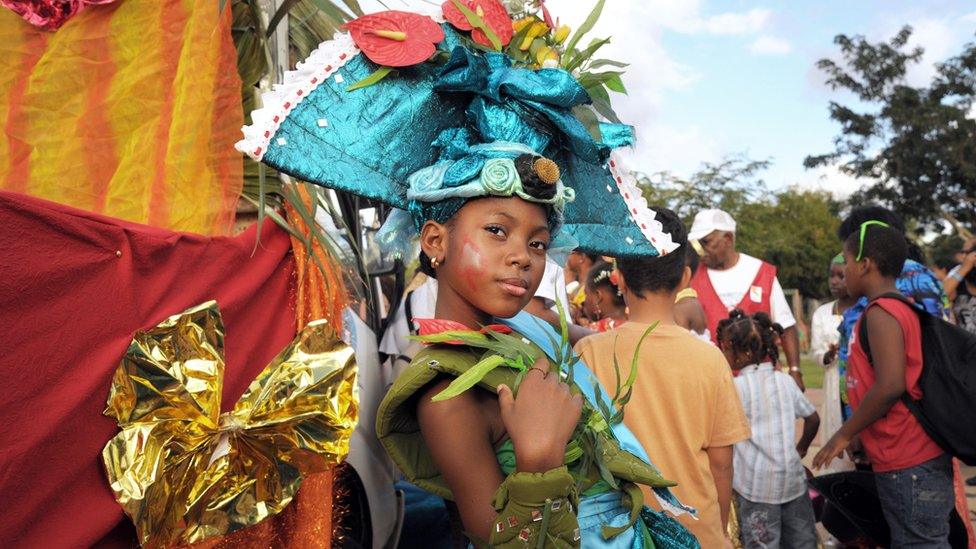
Carnival parade on the streets of Fort-de-France
Key dates in the history of Martinique:
1st Century AD - Arawaks from central America settle on the island.
11th Century - Caribs from the Venezuelan coast arrive.
1502 - Columbus briefly lands
1635 - The French are the first Europeans to colonise the island after being driven off nearby St Kitts by English forces.
17th Century - Caribs repeatedly resist French settlement and attempt to drive the colonists off the island.
1674 - Dutch attempt to conquer Martinique.
1693-1815 - Martinique is attacked or occupied several times by the British. Britain controls the island for most of the Napoleonic wars, 1794-1815, after which it is traded back to France as part of the post-war settlement.
1848 - Following slave rebellions in 1789, 1815 and 1822 adn the campaigns of abolitionists, the French government ends slavery in the French West Indies.
1902 - Mont Pelée erupts and completely destroys the capital St Pierre, killing 30,000 people. After this, the capital is moved to Fort-de-France.
1946 - French National Assembly votes unanimously to transform the colony into an overseas department of France.
1962 - the pro-independence OJAM, Organisation de la jeunesse anticolonialiste de la Martinique, is formed.) However the independence movement loses momentum as Martinique's economy falters in the 1970s.
2009 - French Caribbean general strikes begin in neighbouring Guadeloupe and swiftly spread to Martinique. The trigger for discontent is the cost of living, with demands for an increase in the salaries of low income workers.
2010 - Inhabitants vote in a referendum to change Martinique's status to that of a "special (unique) collectivity" within the French Republic.
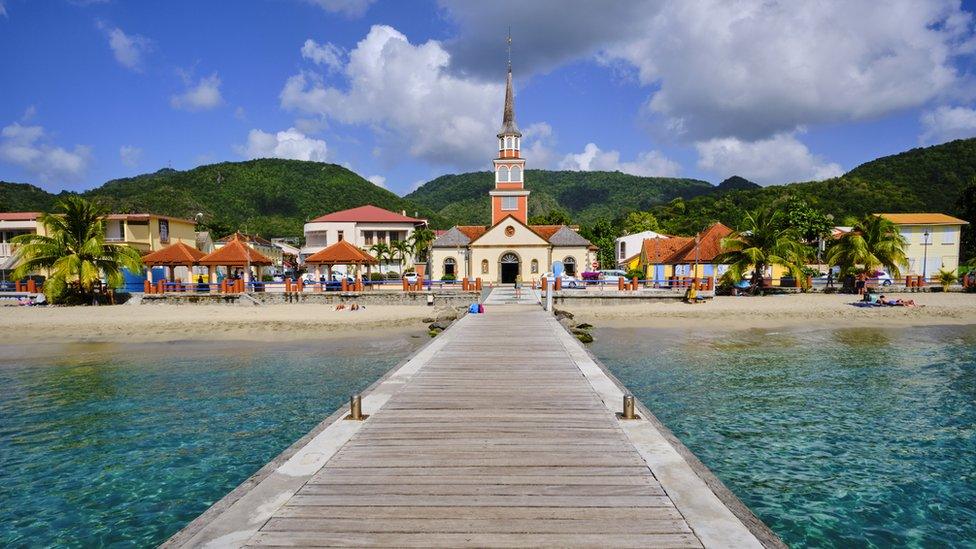
Martinique's economy is heavily dependent on tourism, some agriculture - and grant aid from mainland France
Related topics
- Published29 August 2023
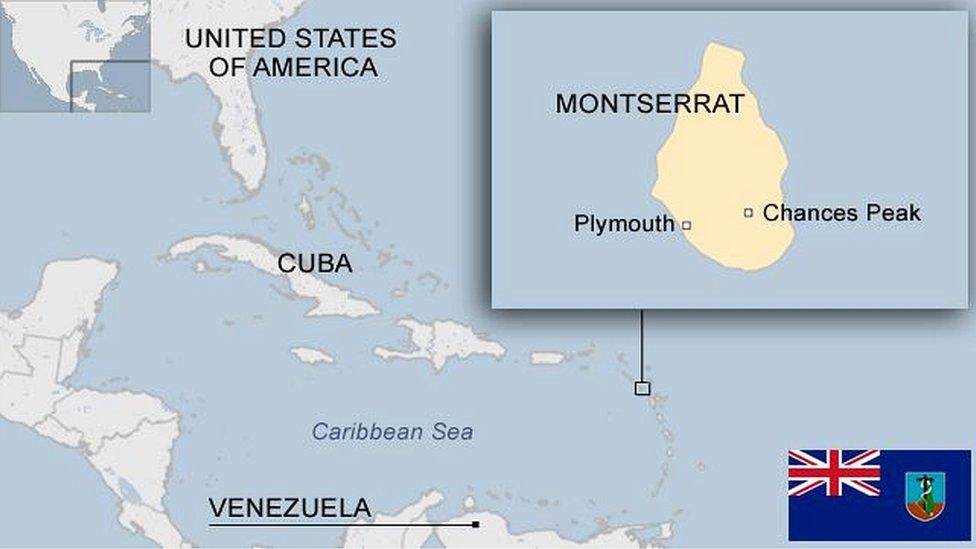
- Published18 July 2023
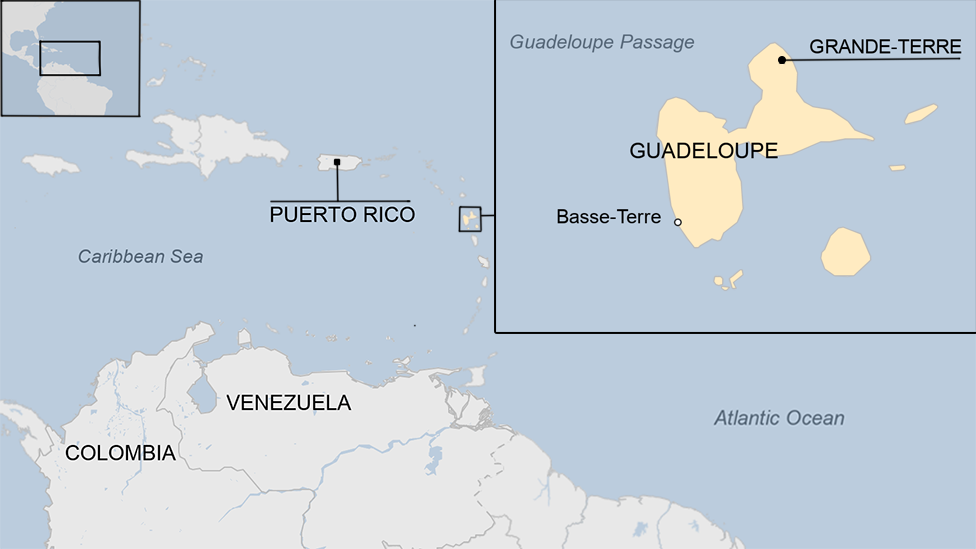
- Published2 April 2024
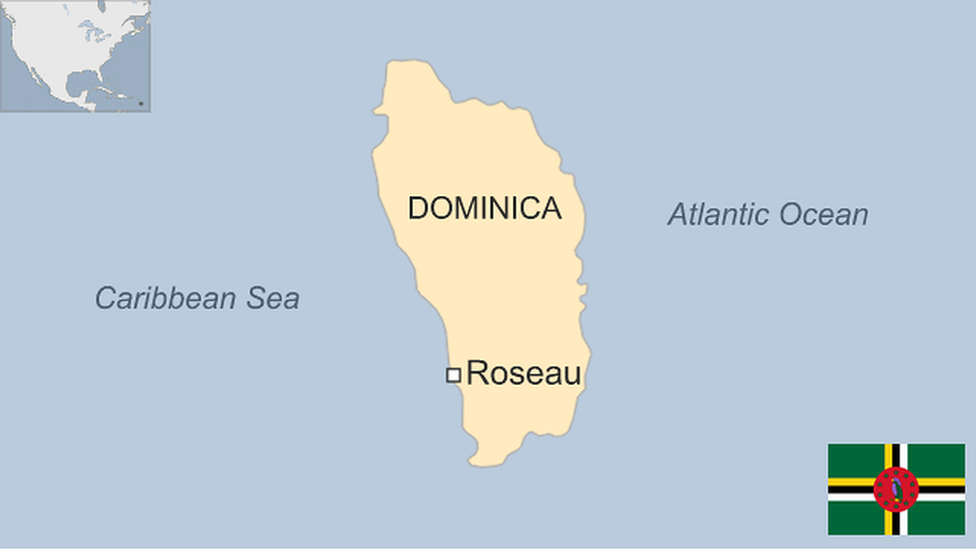
- Published2 April 2024
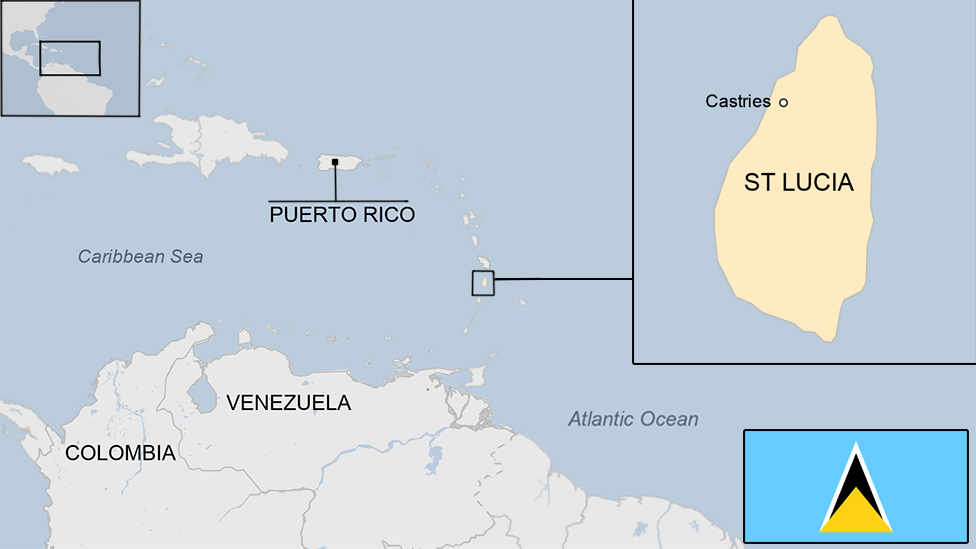
- Published25 August 2023
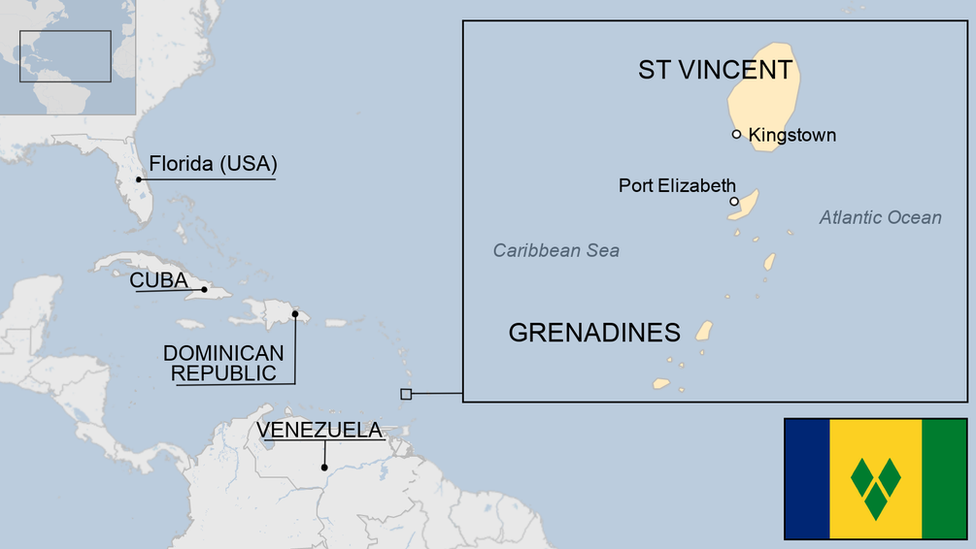
- Published13 May 2024
